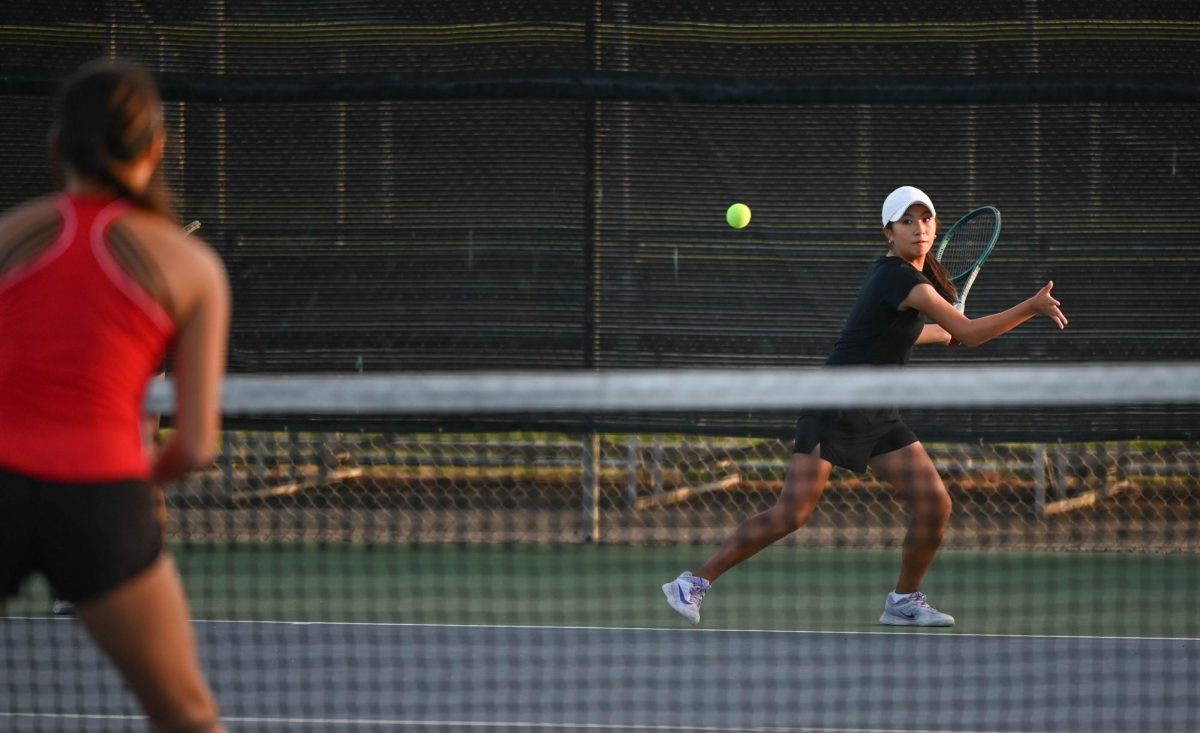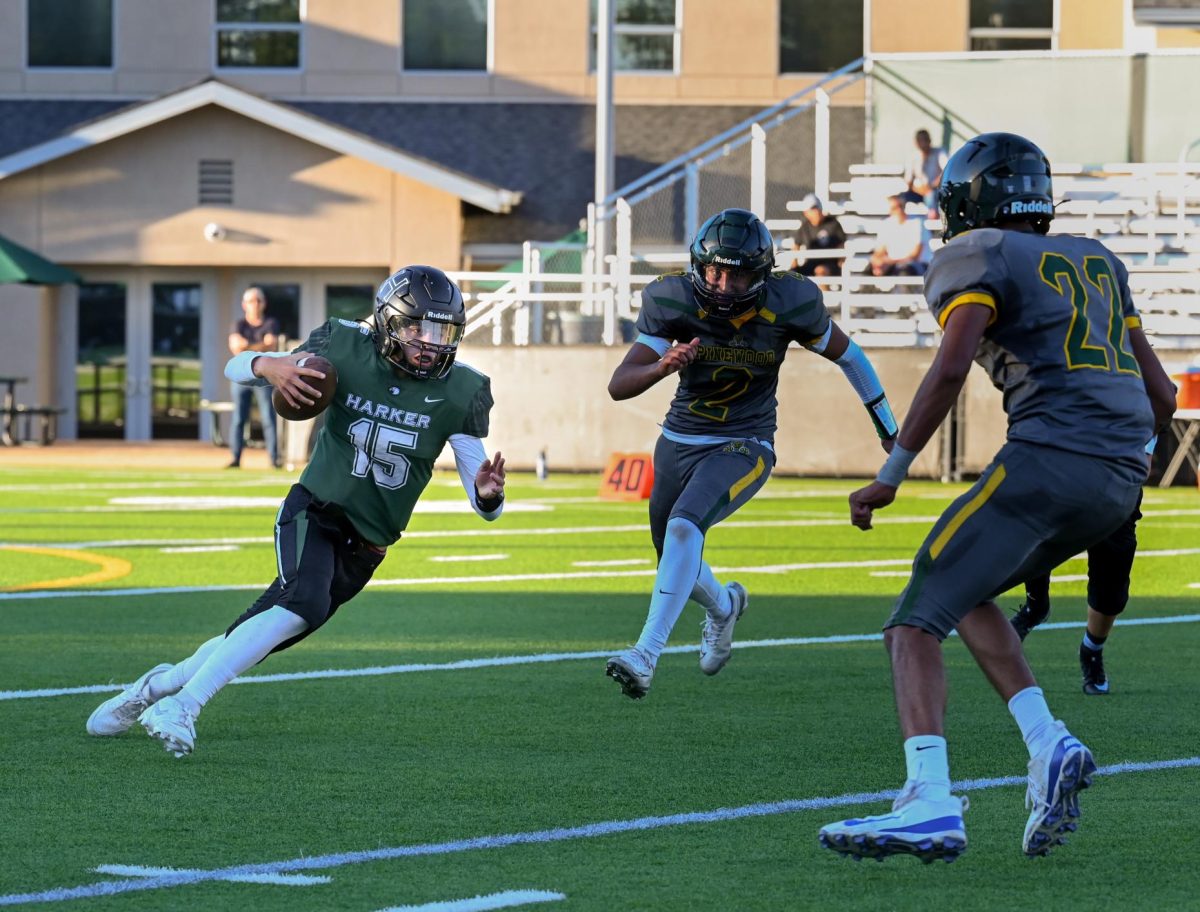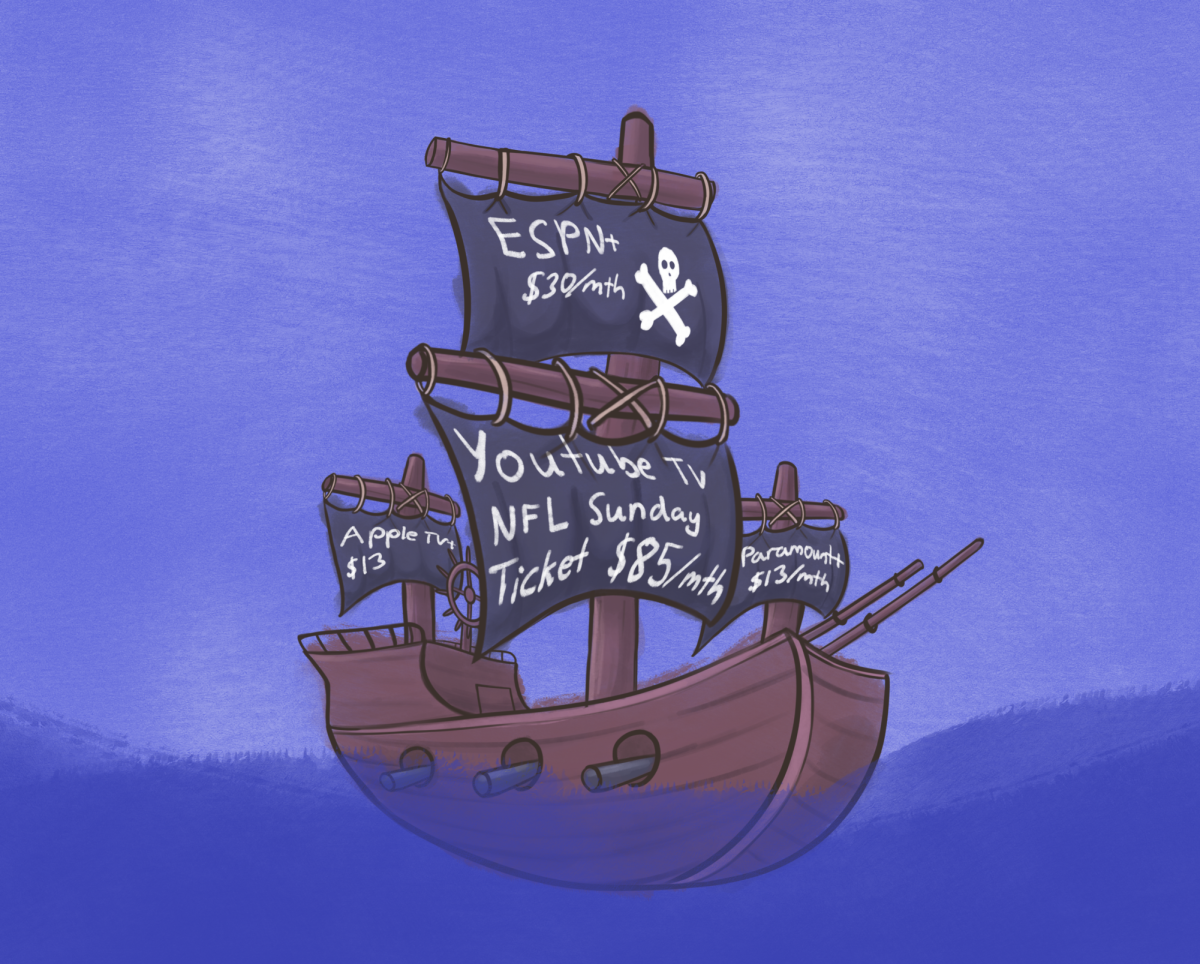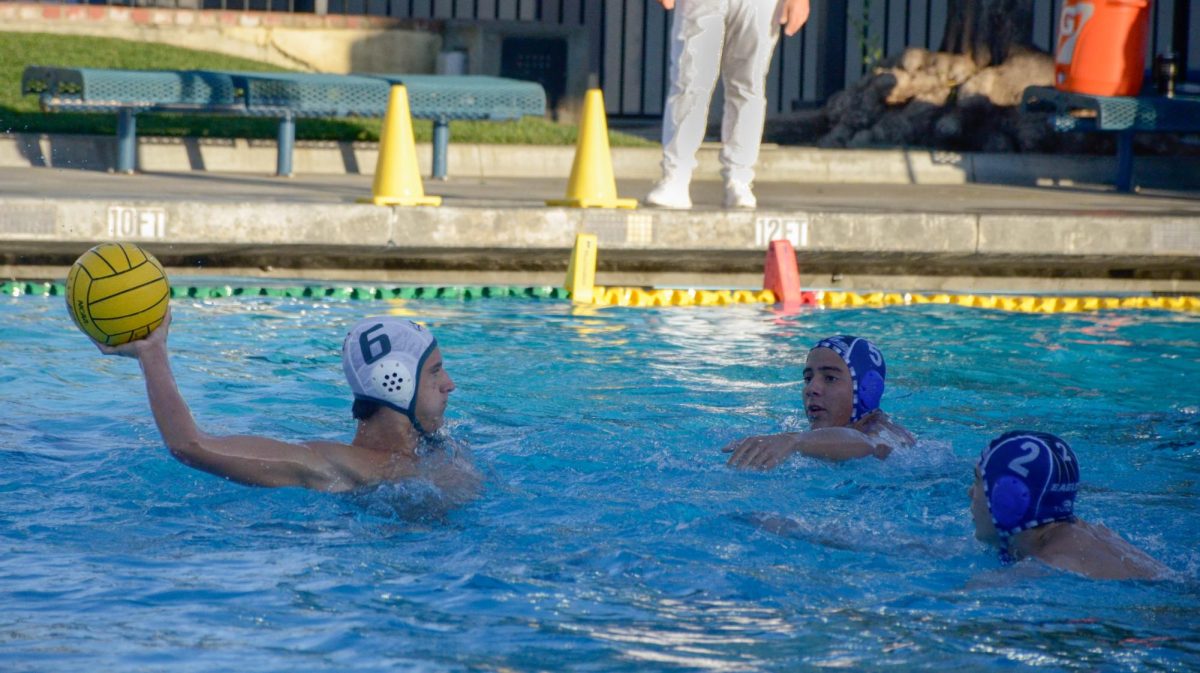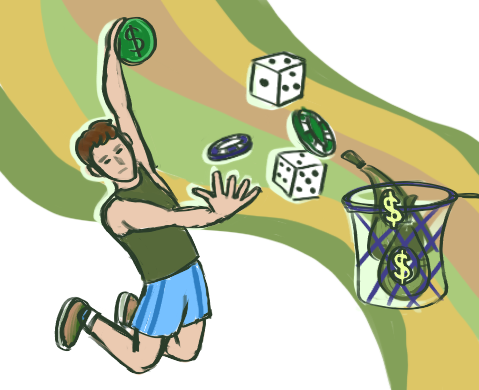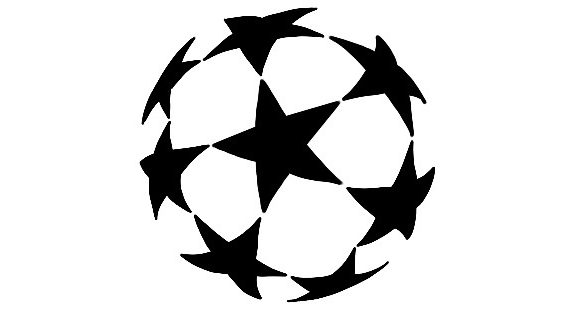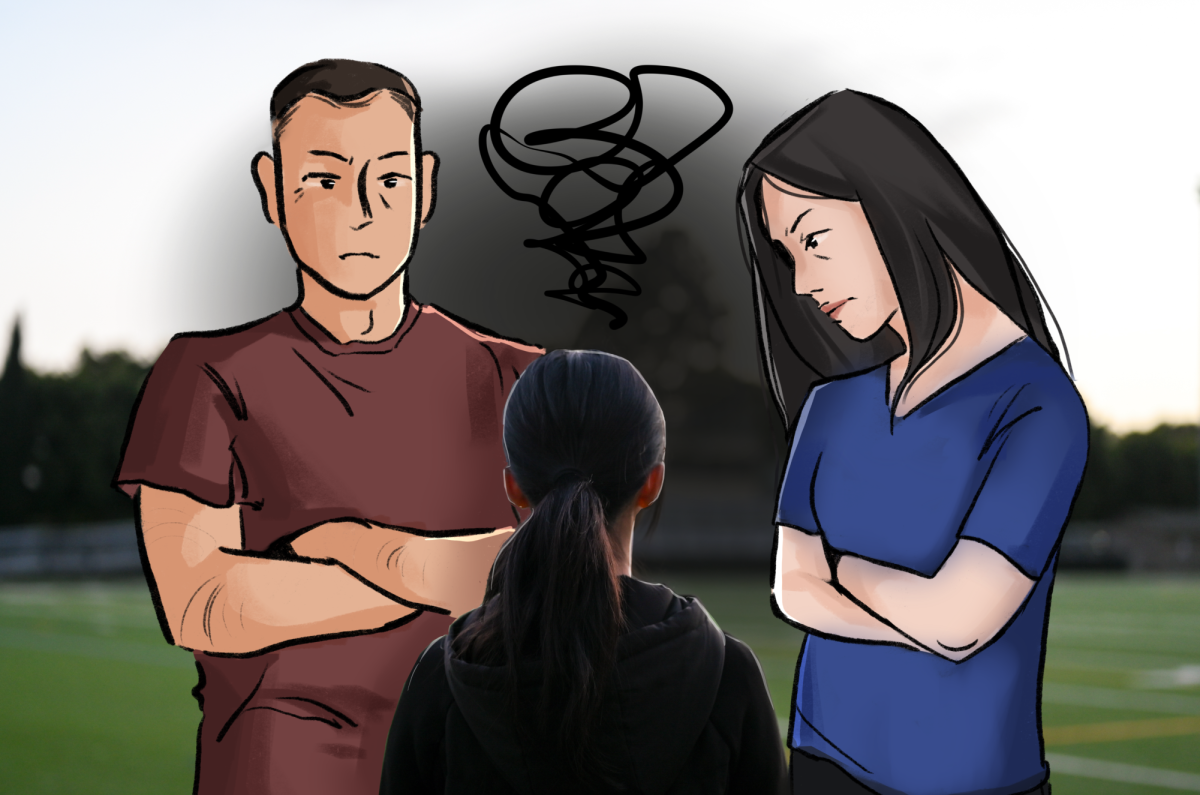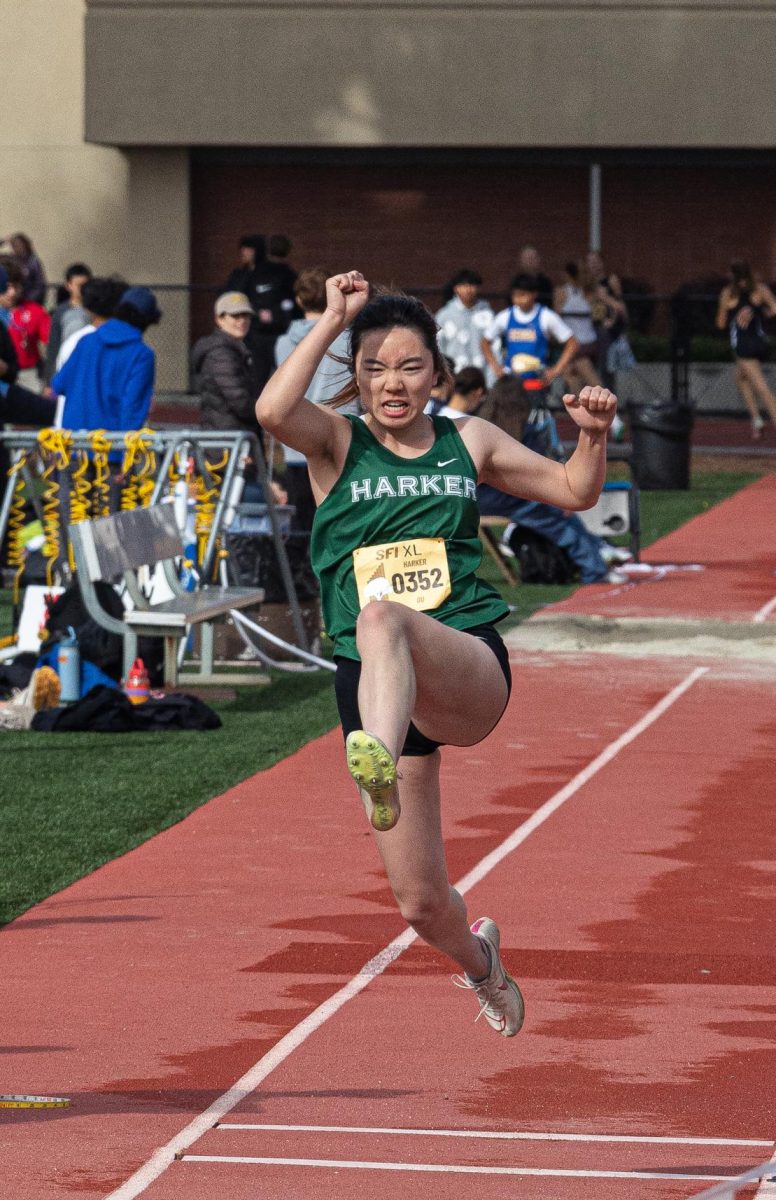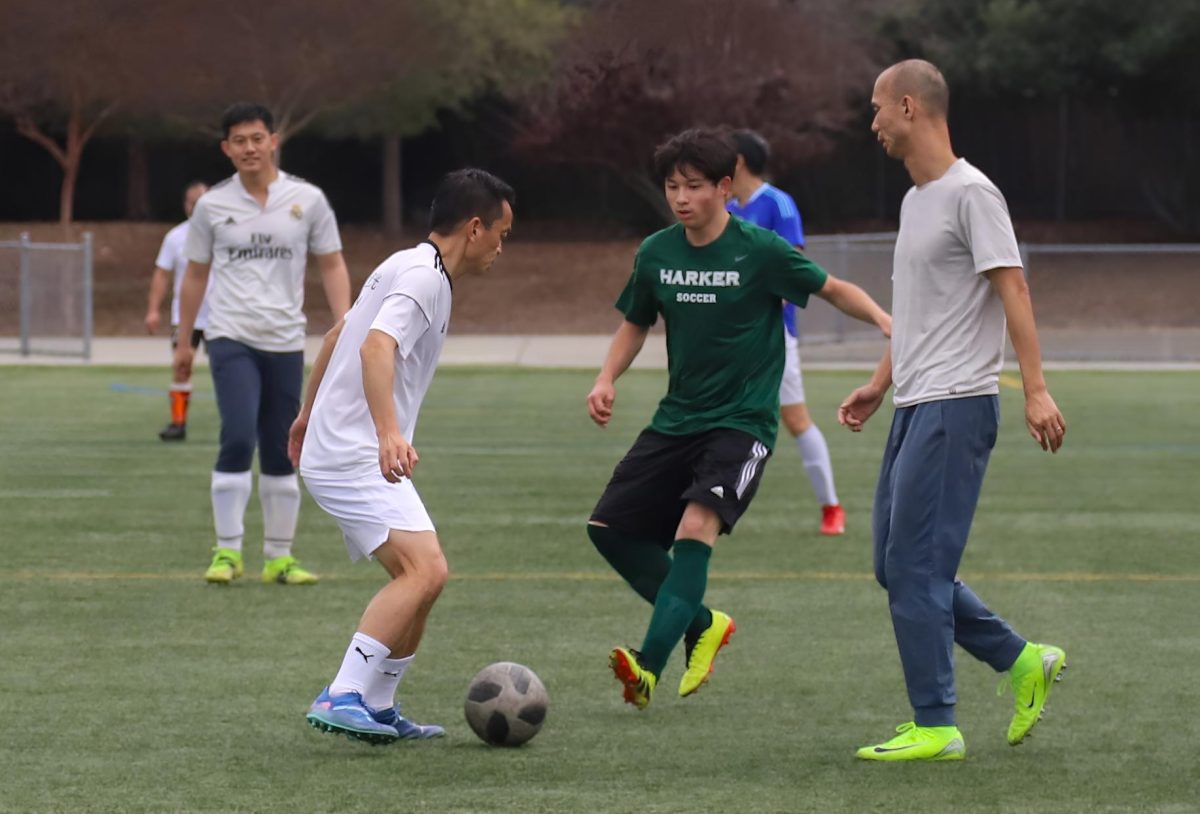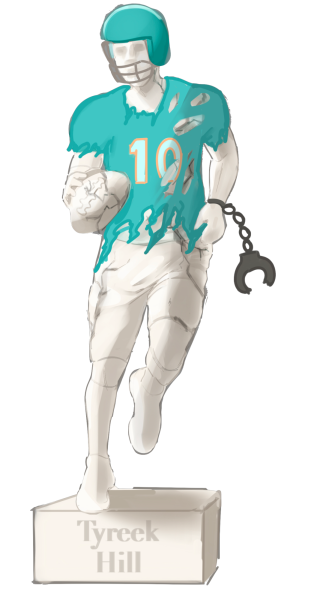
Trigger warning for discussion of sexual assault and domestic violence.
When Dutch beach volleyball player Steven Van de Velde stepped onto the court at the 2024 Olympics, he faced boos and jeers from the stands. In 2016, Van de Velde was convicted of raping a 12-year-old girl. His inclusion in the Olympics sparked widespread outrage among those who called for greater accountability, but others defended him by arguing he deserved a chance to move forward.
Van de Velde’s story highlights the minimal consequences athletes may receive for their misconduct while continuing to be given opportunities.
Varsity girls volleyball player Alexis Leo (10) noted the dangers of this idealization for growing youth.
“If kids think, ‘this guy committed these crimes, but he’s still allowed to compete on the world stage at the Olympics,’ that makes them think that you can get away with anything if you’re really good at sports,” Alexis said. “It definitely skews a child’s judgment between what’s right and what’s wrong.”
One of the many examples where an athlete’s talent may overshadow immoral behavior is Miami Dolphins wide receiver Tyreek Hill. While playing for Oklahoma State, Hill pleaded guilty to domestic violence against his pregnant girlfriend and was dismissed from the team in late 2014. Despite this, the Kansas City Chiefs drafted him two years later.
Hill apologized and vowed to improve, but in 2019, he faced allegations for child abuse against his son. Although the Chiefs temporarily suspended him, the NFL did not, raising questions about whether his skills and potential for profit influenced the decision to keep him in the league.
“We will always idolize the best athletes for being the best,” former strength and conditioning coach and varsity girls lacrosse Head Coach Lauren Brown said. “The crimes will always be small compared to their achievements in their sport. I don’t think we’ll ever get away from that, no matter how bad they are as a person. Unfortunately, that’s just how the world is.”
Athletes like Tiger Woods who have smaller misdemeanors also remain uncontested. Woods, a renowned golfer, has faced significant personal and professional challenges, including a highly publicized infidelity scandal in 2009 and a DUI arrest in 2017.
Professional leagues often face criticism from fans for being inconsistent in their action against athlete misconduct. Policies seen as overly controlling, like the NFL’s suspension of multiple players for their marijuana usage, can alienate fans of the specific players. Leagues often avoid imposing strict consequences on athletes to prevent backlash, which can create further confusion among fans.
“There are cases where the league is seen as too restrictive and too over-controlling, which can make fans mad,” football fan Spencer Chang (11) said. “In some cases, they probably lean less on doing something about athletes because the people can take more action, like reporters and news outlets.”
Despite these controversies, Woods remains a celebrated athlete and receives admiration for his resilience like competing in the 2008 U.S. Open with a double stress fracture. Whether he should continue to serve as an inspiration, or if that promotes unethical and unhealthy behavior remains unclear.
“For young athletes, their biggest dream is to make it big and become a pro athlete,” Alexis said. “When you’re younger, it’s easier to believe these people are super cool. Just like with any celebrity, you think they’re auto-justified for anything they do, just because you see them as a giant figure in your life, and you want to be them so badly.”
In 2022, NBA player Kyrie Irving garnered widespread criticism and a suspension by the Brooklyn Nets after sharing a link to an antisemitic film on social media without context. Many pro-athletes don’t face the public spotlight until they reach college or national leagues. They may not consider the effects their actions and words have on influencing young fans.
“Athletes should be aware that there’s a spotlight on them, so they have to be more attentive to what they’re doing,” Spencer said. “When they do things that are morally wrong, the athletes don’t seem to be judged as much as regular people, but they’re still being watched.”
Brown highlights the importance of transparency for young athletes to recognize and critically assess the behavior of these figures.
“It’s hard for a young kid to decide not to be a fan of someone because crimes are lessened since they have this ‘best’ status,” Brown said. “If young athletes are aware of what these professionals did and understand how to treat people the right way, they will be able to see the separation of their actions, and how they are athletically. But as a society, we’re fed the information we want.”
However, when athletes recognize their influence and use it effectively, they can inspire change. Former professional tennis player Serena Williams has been a vocal advocate for racial equality and women’s rights. NBA player LeBron James founded a foundation that provides education and resources to underserved communities.
Alexis emphasizes the crucial role of mentors in shaping how young people view these complex athletes.
“It’s up to the parents or other adult figures to help the kids decide what’s right and what’s wrong and help them be educated,” Alexis said. “For example, though they’re a good athlete, it doesn’t mean that the person did something excusable. They could still be a good athlete and be a bad person at the same time.”


















![“[Building nerf blasters] became this outlet of creativity for me that hasn't been matched by anything else. The process [of] making a build complete to your desire is such a painstakingly difficult process, but I've had to learn from [the skills needed from] soldering to proper painting. There's so many different options for everything, if you think about it, it exists. The best part is [that] if it doesn't exist, you can build it yourself," Ishaan Parate said.](https://harkeraquila.com/wp-content/uploads/2022/08/DSC_8149-900x604.jpg)




![“When I came into high school, I was ready to be a follower. But DECA was a game changer for me. It helped me overcome my fear of public speaking, and it's played such a major role in who I've become today. To be able to successfully lead a chapter of 150 students, an officer team and be one of the upperclassmen I once really admired is something I'm [really] proud of,” Anvitha Tummala ('21) said.](https://harkeraquila.com/wp-content/uploads/2021/07/Screen-Shot-2021-07-25-at-9.50.05-AM-900x594.png)







![“I think getting up in the morning and having a sense of purpose [is exciting]. I think without a certain amount of drive, life is kind of obsolete and mundane, and I think having that every single day is what makes each day unique and kind of makes life exciting,” Neymika Jain (12) said.](https://harkeraquila.com/wp-content/uploads/2017/06/Screen-Shot-2017-06-03-at-4.54.16-PM.png)








![“My slogan is ‘slow feet, don’t eat, and I’m hungry.’ You need to run fast to get where you are–you aren't going to get those championships if you aren't fast,” Angel Cervantes (12) said. “I want to do well in school on my tests and in track and win championships for my team. I live by that, [and] I can do that anywhere: in the classroom or on the field.”](https://harkeraquila.com/wp-content/uploads/2018/06/DSC5146-900x601.jpg)
![“[Volleyball has] taught me how to fall correctly, and another thing it taught is that you don’t have to be the best at something to be good at it. If you just hit the ball in a smart way, then it still scores points and you’re good at it. You could be a background player and still make a much bigger impact on the team than you would think,” Anya Gert (’20) said.](https://harkeraquila.com/wp-content/uploads/2020/06/AnnaGert_JinTuan_HoHPhotoEdited-600x900.jpeg)

![“I'm not nearly there yet, but [my confidence has] definitely been getting better since I was pretty shy and timid coming into Harker my freshman year. I know that there's a lot of people that are really confident in what they do, and I really admire them. Everyone's so driven and that has really pushed me to kind of try to find my own place in high school and be more confident,” Alyssa Huang (’20) said.](https://harkeraquila.com/wp-content/uploads/2020/06/AlyssaHuang_EmilyChen_HoHPhoto-900x749.jpeg)





